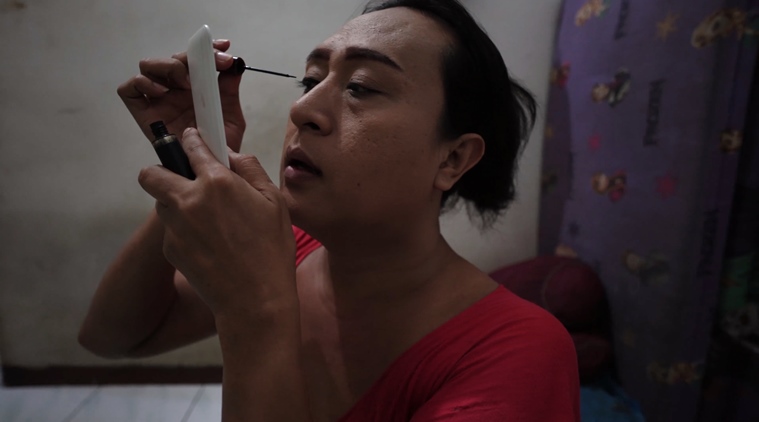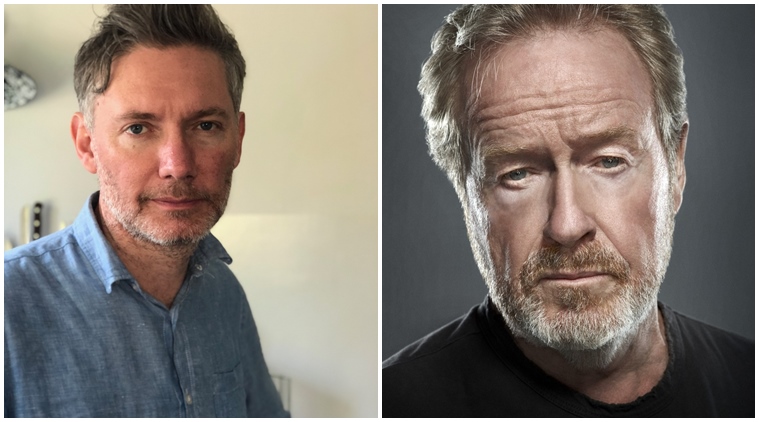“Life in A Day 2020 comes from the people, I’m more of a DJ than a music creator”: Kevin Macdonald
In January, when Hollywood filmmaker Michael Apted (directed the Pierce Brosnan-starrer The World is Not Enough and The Chronicles of Narnia: The Voyage of the Dawn Treader, among others), died aged 80, most of his obituaries chose to pay ode to him as the longitudinal documentarian of the Up! series. Regarded as the “noblest project in cinema history”, starting with Seven Up! in 1964 to 63 Up in 2019, the series followed the life of his cast every seven years.
His series is like a “social movement”, charting “a period when life changed dramatically (from capturing a generation that entered adulthood in the post-Eisenhower years, the Beatles’ first album was released, John Osborne wrote Look Back in Anger, a sexual revolution was taking place, the sense of a brave new world was out there and, yet, the classist English society continued to discriminate between us and them, the empowered and disempowered). The whole American and English culture — politically and economically — changed dramatically, and in a sense my film is a history of that,” he said in one of his interviews. The documentary filmmaker’s role as a historian/chronicler is rather important.
Fellow Londoner, The Last King of Scotland director, Kevin Macdonald’s crowdsourced time-capsule films Life in A Day 2010 and 2020 (YouTube Original), produced by The Martian director Ridley Scott, are similar and yet quite different. What started off as an experiment in 2010, has turned into, perhaps, a lifelong project, a decade later. The second film, Life in A Day 2020, which premiered at Sundance Film Festival in January, is now available on YouTube, and has already crossed 12 million views.
In the new film, like the old one, vignettes of life, from across the globe, unspool over 1 hour, 26 minutes. A man visits the various subdivisions in Illinois, the US, to witness all seven Class I railroads pass by in the span of a day. A Yakut/Sakha man in northern Siberia’s Debdirge village stores ice blocks from the frozen lake to be melted for consumption, in his vault. He says he fears his “life will pass unnoticed, that my name won’t matter in the history of the world”. A young man in a breathing apparatus says people treat him as dead, but being “alive, able to see and breathe, isn’t that enough?” A black man has to deal with hatred and his blackness daily. A black woman in the conservative Brevard County, Florida, US, speaks of how her two unarmed brothers were killed in police custody. In the wake of the killing of Breonna Taylor, George Floyd, among others, last year, the #BlackLivesMatter movement gripped the world. The film truly “represents 2020 and shows the things that make us similar/bind us together as human beings are so much more important than those that separate,” says Macdonald. He adds, “Everybody in this film is equally important, it gives dignity to every single person. The film shows the potential of every human life.”
 A still from the film Life in A Day 2020
A still from the film Life in A Day 2020
From 13,000 hours of material from 192 countries — “about three times more than in 2010” — with America “still at the top with about 25 per cent of the total material (it’d sent 55 per cent in 2010). Huge entries went from Turkey, Indonesia, and India (about eight per cent of the total, such as of a boy on the terrace trying to catch a glimpse of a girl he likes in the next building or roti puffing up on a gas stove).
“The first lockdown last year was enforced quietness, like a meditation retreat, but as time passed, life has become flattened and uniform,” says Macdonald. This time, the tone of the film is very different, because “maybe due to COVID-19, but also because we’re just living in a slightly more complicated political, darker time. Looking back, 2010 feels very innocent, naive, joyful, simple. This time, people were sadder, more thoughtful,” he says.
The footages are interleaved by men in hazmat suits spraying sanitisers in a containment hotel, empty roads, stations and beaches, a statue wearing a mask in China, doctors processing samples of Oxford University coronavirus vaccine candidate, groups of people e-meeting families and friends. A child rues how “coronavirus ruined his whole life” because it disrupted his sleepover plans. It’s saddening to hear a mother having lost her son to the virus. Alexander ‘ATG’ Lucas — to whose memory this film is dedicated — died, aged 24, on February 18, 2020 due to COVID-19 complications. The camera shows the old footage from the first film on her television, where Alex’s mum was trying to wake her then 14-year-old son up and cuts to the souvenirs on the table which bear his memories. “It’s a very shocking and moving piece. His mother is emotional and feels it is a lovely memorial to him. You see all sorts of not just different characters in different worlds, but also different ways people film things, the different views they have of the world. It’s very enlightening. For me, it’s a real privilege to get to do this,” Macdonald adds.
 Life in A Day 2020’s director Kevin Macdonald and producer Ridley Scott.
Life in A Day 2020’s director Kevin Macdonald and producer Ridley Scott.
Materials were selected based on how “a story was unfolding, or if it had an amusing incident”. Macdonald’s three editors — Nse Asuquo, Mdhamiri Á Nkemi, Sam Rice-Edwards — gave a structure to the selected little sections to give the impression that this is all one life unfolding over a single day (shot on July 25, 2020).
There’s happiness, sadness and acceptance. There’s birth (even lockdown home/water births) and loss: break-ups, death and burial. Life in a day is not always about happy endings. The film’s ending has a son and father driving and singing (Engelbert Humperdinck’s Quando, quando, quando) — a reminder of how the circle of life goes on. “This is a better film, because it’s much more. It has all the silliness, fun, joy, and all the things that the last film had but also profundity and depth. It shows what it is to be alive, amid the ups and downs, highs and lows,” says Macdonald.
This film is tighter than the first one, has a structural flow, the music helps in giving it a shape and emotional context, and has a spiritual quality about it. “Much of what’s in the film comes from the people, I’m just a selector, more of a DJ than a music creator. The film is about the whole of life, and spirituality is obviously a big part of that, particularly at the moment, with everything that people are going through,” he says.

